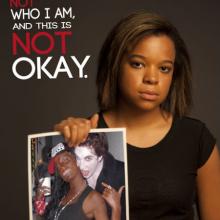costumes
1. Let’s start with this — if you are not a person who ethnically identifies as black (truly black — please miss me entirely with any Rachel Dolezal references), you cannot use the N-word. Not in a song. Not ever. I am not going to apologize for this. I am not going to engage in conversations about “rights” as it relates to freedom of speech. You do not have the right to comment on how this word is used by black people within the black community. This word has been bought and paid for through the hundreds of thousands of bodies/lives. I fully recognize that entitlement doesn’t ever want to be told what it can and cannot hold. But entitlement has blood on its hands that it has not yet truly begun to atone for, so I want to say this (and please hear me): This word does not belong to you.
Americans love Halloween. In fact, maybe it’s fair to say we go crazy about Halloween. How crazy?
Americans spend $310 million dollars per year on costumes … for our pets. Wow.
In total, Americans spend between $6.5 – $6.86 billion dollars on all things Halloween: costumes, candy, and decoration. More wowzers.
So, as the average consumers spends about $27 on costumes, I thought it’s never too early to encourage folks to be careful how they dress up for Halloween … even if it’s “all in the spirit of fun.”
Listen, I like fun. And while my social life is nearly zilch, I like fun parties, but it’s all fun and games until someone shows up at a costume party or … err … at your front door trick-or-treating in a borderline racist costume.
Yes, it’s not too early to tell people:
Please don’t dress up in a blackface, yellowface, brownface, or any other costumers that stereotype, denigrate, or mock another culture.
Don’t caricature another real culture. Why? Because we’re a culture and not a costume.

